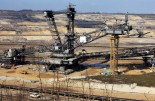Alger: Energized
Alger: Energized

During the past 70 years, the U.S. has become better at using less energy to produce more goods and services. This trend is illustrated by energy intensity, as measured by the ratio of energy consumption to GDP, which has declined 63% since 1950.
This increase in productivity could potentially help dampen the recent impact of higher oil and gas prices on the U.S. economy and corporate earnings. With technology helping drive increased domestic energy production, we believe, higher prices may even potentially support the economy by driving growth in capital expenditures by energy companies.
A lot has changed since the 1970s when the U.S. experienced an oil supply shock that drove significant inflation. Our new digital economy is less energy dependent and we believe data is the new oil. At the same time, automobiles, buildings and manufacturing have become more energy efficient.
Energy, while being less of an input cost for companies, may even be more likely to support GDP growth as higher prices cause energy companies to potentially increase their capital expenditures to produce more. We believe, the increase in capital expenditure may exceed the extent to which higher energy prices limit consumption.
We don’t think investors need to be overly concerned with higher energy prices crimping the economy, but we do believe there is opportunity in growth-oriented technology providers to oil and gas companies to help optimize well drilling and other areas of upstream exploration and production. Additionally, as the price of solar or wind energy becomes cheaper relative to prices for oil and gas, higher hydrocarbon prices may help spur activity in alternative energy solutions, in our view.










